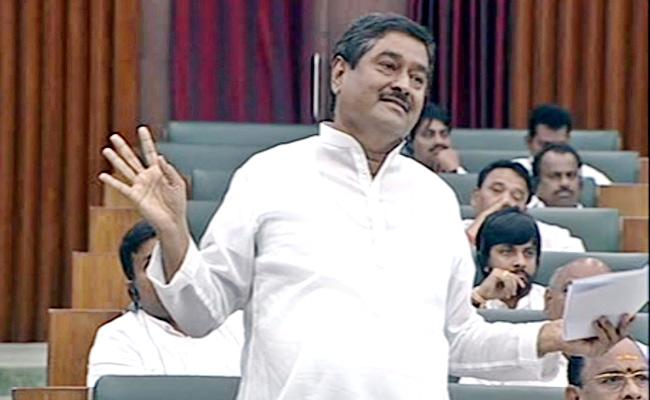
Former minister and senior YSR Congress party MLA Dharmana Prasada Rao on Thursday made sensational comments on the role of judiciary vis-à-vis the state legislature, while indirectly referring to the recent high court judgement on Amaravati capital issue.
Participating in the debate on decentralised administration issue, Dharmana said the judiciary could interfere only if the laws enacted by the legislature were in contravention of the Constitution of India.
“But the courts cannot run the government. Too much judicial activism is like a missile fired without proper direction,” he said and found fault with the high court questioning the decisions of the state government.
Dharmana said if the courts begin interfering in the powers of the legislature and the executive, their activities would also come under the review by the the voters and politicians.
“If that happens, the judiciary would lose its independence,” he said.
He said a series of judgements by the high court have become irritants for the administrative machinery.
“We don’t want to attribute motives to the judiciary. But the people of the country have the power to review the judgements of the courts,” he said.
The former minister reminded that the Supreme Court had clearly mentioned that executive and legislature were equally competent along with judiciary.
“Only the legislature has the law-making authority. This is clearly mentioned in the Constitution,” he said.
Dharmana also found fault with the courts for doing analysis on the executive decisions.
“It should be done by the expert committees, not the courts. They should not cross their limits and trespass into the functioning of the executive,” he said.
Stating that the government had the responsibility to take decisions in the interest of the people, he said it would do a lot of harm to the people if the judiciary obstructs them.
“The government has the responsibility to remove disparities in the society. It brings about new policies only for the same. The legislature has the power to enact laws for the implementation of the new policies,” he asserted.












